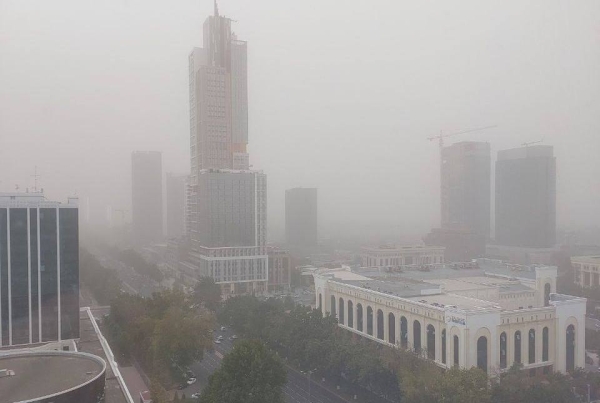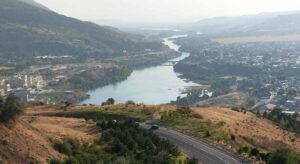Uzbekistan’s Tashkent continues to experience significant air pollution issues. On August 2, the IQAir portal reported that the concentration of PM 2.5 (fine particulate matter) in the city was 5.4 times higher than the World Health Organization’s recommended base level.

In response to the pollution, protest groups have organized flash mobs in Tashkent this summer. Participant Temurkhan Jahangir pointed to the government’s urban planning policies as a major factor contributing to the city’s air quality problems.
Jahangir stated, “The urban development strategy focusing on urban densification was flawed. Increasing the number of buildings in the city centre exacerbates the issue.”
The Ministry of Ecology reported that approximately 49,000 trees have been illegally cut down in the Tashkent region, further impacting air quality.
On January 29, President Shavkat Mirziyoyev addressed the nation’s ecological challenges. He criticized construction projects that do not consider environmental protection and instructed the Ministry of Ecology to develop a “master plan” for each city and district in Uzbekistan. Local governors were directed to improve the ecological situation by the end of the year.
According to the Ministry of Ecology, Tashkent sees daily movement of approximately 730,000 motor vehicles, with an additional 160,000 to 300,000 vehicles entering from other regions. Many of these vehicles use A-80 gasoline, which does not meet international standards and emits harmful pollutants beyond acceptable limits.
President Mirziyoyev has mandated the ministry to phase out A-80 gasoline by 2025 and to develop sustainable public transportation. He also emphasized the importance of promoting electric vehicles to support green energy initiatives and reduce harmful emissions.




